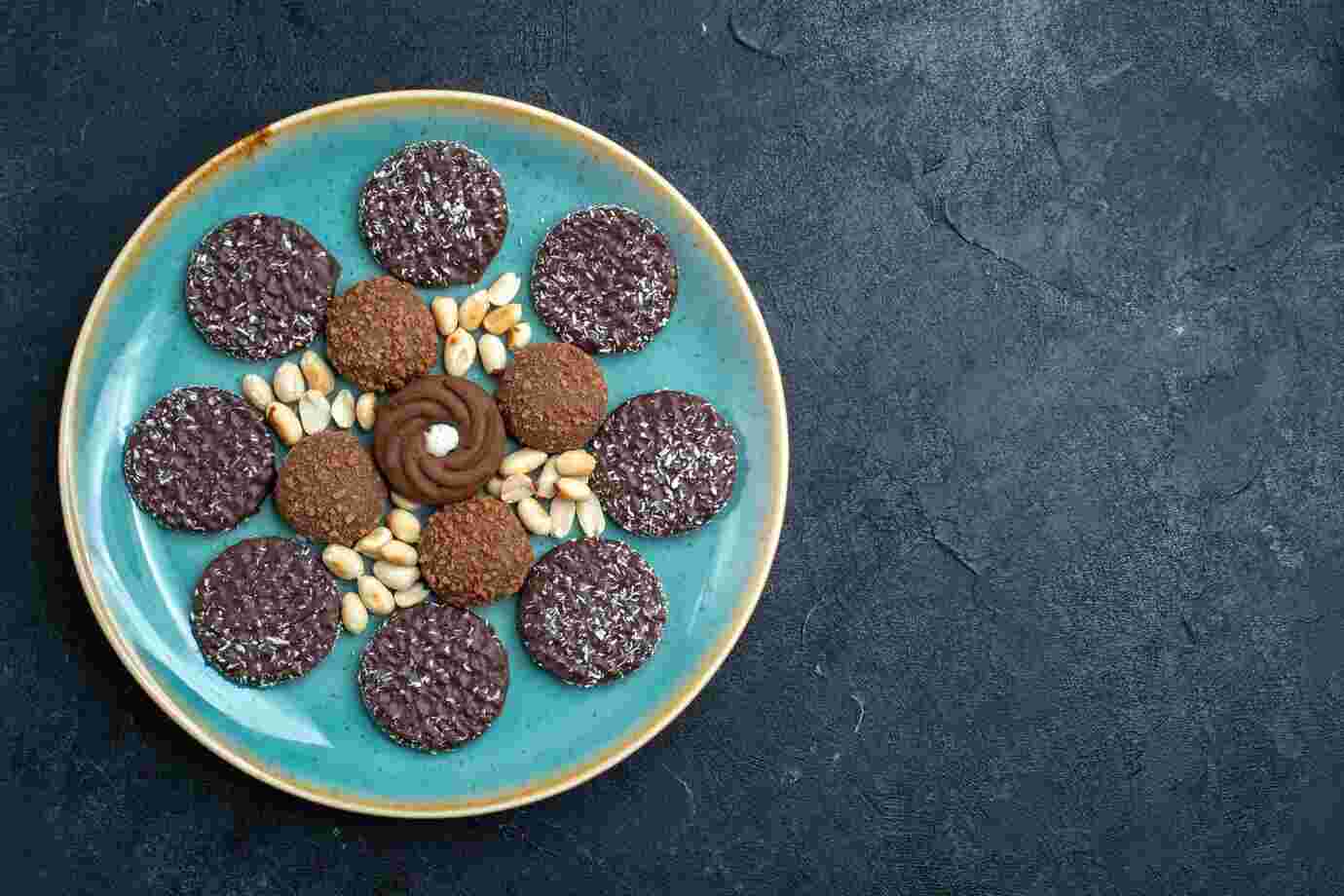Love chocolate but sensitive to caffeine? You’re definitely not alone. Whether it’s a late-night craving or a daily treat, many people wonder if that sweet indulgence comes with a caffeine kick. The short answer? Yes—chocolate can contain caffeine, but how much depends on the type.
Dark chocolate has more caffeine than milk chocolate, and white chocolate? It has almost none. But what does this mean for your energy levels or sleep habits? And how does chocolate stack up against coffee or tea when it comes to caffeine?
In this article, we’ll break it all down. You’ll learn which chocolates have the most caffeine, how much is in your favorite bar, and whether it’s something to worry about. So if you’ve ever asked, “Does chocolate have caffeine?”—you’re about to get your answer.
Why Chocolate Contains Caffeine
Chocolate contains caffeine because it’s made from cocoa beans—and cocoa naturally carries caffeine. Just like coffee beans, cocoa beans are plant-based sources of this mild stimulant.
Alongside caffeine, cocoa also contains theobromine, another compound that acts as a stimulant. While caffeine affects your central nervous system and gives you a quick energy boost, theobromine works more gently, offering a mild, longer-lasting lift.
Here’s the key: The more cocoa a chocolate has, the more caffeine it contains. That’s why dark chocolate, which can be 70% cocoa or more, has higher levels of caffeine than milk or white chocolate.
White chocolate, by contrast, is made mostly of cocoa butter and contains little to no cocoa solids—so it typically has negligible caffeine.
So, if you’re watching your caffeine intake, the type of chocolate you choose really matters.
How Much Caffeine Is in Different Types of Chocolate?
Not all chocolate has the same amount of caffeine. The difference lies in how much cocoa each type contains. Here’s a quick breakdown:
- Dark chocolate (70–85% cocoa): Around 23 mg of caffeine per 1 oz. That’s the highest of all chocolate types due to its high cocoa content.
- Milk chocolate: Contains much less—only about 6 mg per 1 oz. It has more milk and sugar, and less cocoa.
- White chocolate: Usually has no caffeine at all, since it’s made from cocoa butter, not cocoa solids.
To give you some perspective, an 8 oz cup of coffee has roughly 95 mg of caffeine. So, while chocolate does contain caffeine, it’s far lower in comparison—especially if you’re sticking to milk or white chocolate.
But if you love dark chocolate and are caffeine-sensitive, you may want to watch your portion size.
Even small treats can add up, especially if you also drink tea, soda, or coffee.
Is Chocolate a Significant Source of Caffeine?
For most people, chocolate isn’t a major source of caffeine. Compared to coffee or energy drinks, the amount is pretty minimal—especially in milk or white chocolate. That said, dark chocolate does contain enough caffeine to be noticeable for those who are sensitive.
If you’re someone who feels jittery or has trouble sleeping after just a little caffeine, eating dark chocolate in the evening might not be the best idea. While it won’t give you a huge energy spike, it can subtly interfere with your ability to wind down, especially in larger portions.
So, does chocolate keep you awake? For most folks, probably not. But if you’re caffeine-sensitive, it’s smart to enjoy it earlier in the day or opt for milk chocolate instead.
Caffeine in Chocolate Products
Chocolate shows up in more than just candy bars—and yes, many chocolate-based foods and drinks contain caffeine in varying amounts. If you’re trying to monitor your caffeine intake, it’s worth taking a closer look at those sneaky sources.
Let’s start with the drinks. Hot chocolate usually contains about 5–10 mg of caffeine per 8 oz cup, depending on how much real cocoa is used. Chocolate milk typically has less, around 2–7 mg per serving. Not a huge hit, but it can add up if you drink it often.
Now, desserts and snacks can be trickier. Chocolate cakes, brownies, and cookies made with dark chocolate or cocoa powder may pack a bit more of a caffeine punch. Protein bars, energy bites, or anything chocolate-flavored marketed for performance may contain higher caffeine levels—especially if they include added stimulants.
The real caffeine bomb? Chocolate-covered espresso beans. These combine both chocolate and coffee, offering 60–80 mg of caffeine in just a small handful. Definitely not bedtime-friendly.
Bottom line: If you’re caffeine-sensitive, always check the label. You might be getting more than you realize—especially in packaged treats and drinks.
FAQs
Does all chocolate have caffeine?
Not all! White chocolate usually does not contain caffeine because it lacks cocoa solids. Dark and milk chocolates do, with dark chocolate containing the most.
Can I eat chocolate while pregnant or breastfeeding?
Yes, but in moderation. Most guidelines suggest staying under 200 mg of caffeine per day during pregnancy—chocolate contributes to that total, so keep an eye on portions.
Is dark chocolate worse than coffee for caffeine?
Not at all. An ounce of dark chocolate has around 20–25 mg of caffeine, while an 8 oz cup of coffee has about 95 mg. So, chocolate is much milder.
How much chocolate is too much for caffeine-sensitive people?
If you’re sensitive to caffeine, try to limit dark chocolate, especially in the evening. Even 1–2 ounces can affect your sleep or make you feel jittery.
Conclusion
So, does chocolate have caffeine? Yes—but not nearly as much as coffee. Dark chocolate contains the most, while milk chocolate has less, and white chocolate is usually caffeine-free.
If you’re caffeine-sensitive, a little chocolate is usually fine, but it’s smart to enjoy it earlier in the day. Be especially mindful with dark chocolate and chocolate-based snacks or drinks.
Always check the label if you’re limiting caffeine for health, sleep, or pregnancy reasons.
In moderation, chocolate can be a comforting treat with a mild energy boost—just be aware of how your body responds.
